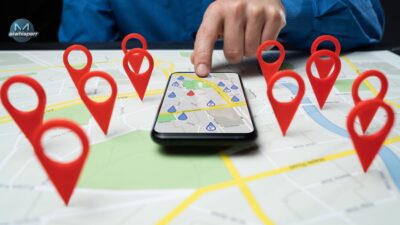Digital Marketing And It’s Working?
Digital marketing is using the internet to promote your products or services. It includes social media ads, email marketing campaigns, PPC advertising, and search engine optimization (SEO). These tools help you reach people online who are likely to buy from you.
Most businesses in the USA now rely on online marketing strategies. These methods help boost brand visibility online. You can also track every click and see if your efforts are working. With tools like Google Analytics, businesses monitor, google search console see which digital marketing channels bring in the most value.
Why Digital Marketing Is NOT a Scam?
Some people think online business promotion is just hype. But the truth is, digital marketing legitimacy depends on how it is done. Businesses that follow honest and tested content creation strategies often see growth. It’s not a trick; it’s just modern advertising.
Think of it like this: you wouldn’t call a car a scam if a bad driver crashes it. The same applies here. Digital marketing only fails when done wrong or with poor planning. Successful businesses invest in digital consultants and use digital training programs to get better results.
The Benefits: How Digital Marketing Helps Businesses Grow
Digital marketing brings many benefits. First, you get more online exposure for businesses. A website optimized with strong SEO practices can bring in free, ongoing organic traffic. That’s people finding your site through Google and clicking without you paying for ads.
Second, email list engagement helps keep your customers close. You can update them about offers, products, or tips. Over time, this builds brand trust building. Also, paid ads allow targeted audience segmentation, meaning you only pay to reach people likely to buy. That’s cost-effective marketing.
Why Some People Still Think Digital Marketing Is a Scam
Many fall for marketing scam warnings after watching viral videos online. You may have seen TikTok SEO claims promising thousands of dollars with no work. These make real vs fake marketing hard to tell apart. Some people lose money on bad advice or scams.
Another reason is false promises. If someone says they can rank you #1 overnight, run. That’s not how SEO practices or digital ad campaigns work. It takes time, testing, and learning. Without training in digital skills, some business owners fall for these traps.
Red Flags to Watch
Scams are real. Avoid any agency that avoids questions or offers no proof. If they can’t explain how their plan works, it’s a sign. Also, some use black hat SEO like keyword stuffing, buying backlinks, or using AI-generated content. These can get you Google penalties.
Others inflate their success using fake followers or fake reviews. That damages your brand and wastes money. Always check a provider’s spam score, domain authority (DA), and ask for verified testimonials. Look up reviews. Real agencies will show you numbers, results, and their strategy.
How to Tell If a Marketer or Agency Is the Real Deal
Real agencies are transparent. They’ll explain which platforms they use, how they’ll give you best results. They use clear reports and track user engagement metrics like clicks, conversions, and bounce rate. Most importantly, they don’t promise magic.
A good agency has case studies, success stories in marketing, and clear communication. They’ll guide you with custom digital marketing channels, not one-size-fits-all. Real pros have clean contracts and stick to timelines. They avoid shortcuts and know the cost of real growth.
Can You Learn Digital Marketing by Yourself successfully?
Yes, you can learn digital marketing by yourself! Many people in the U.S. learn from digital marketing courses online. Free resources from Google, HubSpot, and YouTube help beginners start. But it takes time and real effort. To master SEO practices and content creation strategies, you need hands-on experience.
You can run your own test campaigns. Try writing blogs, sending emails, or managing ads. By doing this, you’ll build your own success stories in marketing. You also learn what works in affiliate marketing programs, influencer promotion, and more.
Pitfalls to Avoid When Starting
Don’t expect overnight results. That’s one of the biggest mistakes. Real online marketing strategies need time. Avoid copying others . What works for one business might not work for another. Focus on your audience, budget, and brand.
Also, don’t jump into everything at once. Start with one or two platforms. Many fail because they try too much too soon. Pick 1-2 digital marketing channels and go deep. Then, add more when you’re ready.
Tips to Get Real Results From Your Digital Marketing Campaign
Always start with a clear goal. Do you want leads, sales, or just traffic? Then build your digital ad campaigns around that. Use targeted audience segmentation to avoid wasting your budget. Track everything. Numbers don’t lie.
Mix free and paid. Use SEO practices for long-term growth and PPC advertising for faster traffic. Don’t forget email. Your email marketing campaigns keep your audience close. If done well, it gives the highest ROI.
| Strategy | Tool/Channel | Result |
| Website Content | SEO | Long-term free traffic |
| Google or Meta Ads | PPC | Fast, paid visitors |
| Email Sequences | Email Marketing | Retention + Conversion |
| Product Reviews + Blogs | Affiliate Marketing | Extra sales through partnerships |
| Instagram Collab Posts | Influencer Promotion | Trust + brand boost |
Final Verdict: So, Is Digital Marketing Legit or Not?
Is Digital marketing legit. It’s one of the most powerful tools for online business promotion today. The scams happen when people don’t do research or trust flashy promises. But the method itself? It works.
With proper planning, tracking, and a little patience, you can grow any business digitally. The U.S. market is full of opportunities. Use honest strategies, learn the tools, and work with the right people. The results will follow.



